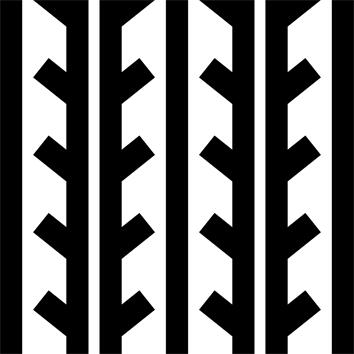How to use snowshoes properly
Before putting on your shoes:
There is one snowshoe for the left foot and one for the right. Make sure you have the right snowshoe for the right foot, using the pictogram on the snowshoe's sieve.
Adjustment:
The adjustment of your snowshoes is essential for safe use.
1/ Your foot must be in contact (front and back) to optimize the shoe's fit.
2/ The straps or buckles (depending on the model) must be tightened as much as possible.
Choosing rackets according to weight:
The choice of snowshoes depends on the weight of the hiker (including the weight of his backpack), to enable him to stay on the surface of the snow. This is called lift. There are different sizes of snowshoes to best adapt to hikers' sizes and weights.
Our advice on this model:
- user weight 40 to 90 kg: medium mesh in sizes 36 to 45
- user weight 60 to 120 kg: large mesh in sizes 40 to 48
The climbing wedge for greater ease on slopes:
Choose snowshoes with an ascending wedge for easier, more comfortable walking on slopes. This removable wedge raises the heel. Use it on steep ascents to reduce the effect of the slope and save energy.
Using poles for greater stability on snowshoes :
We strongly advise you to bring a pair of poles for better stability when snowshoeing. All the more so if you're planning to hike on hilly terrain (slopes, descents, etc.) or in powder snow, where you're likely to sink a little deeper. There are 2 types of washers: choose the wide washers so that the poles stay on the surface.
Choose breathable clothing for snowshoeing:
When hiking in the snow, we tend to over-equip ourselves for fear of getting cold. But snowshoeing warms you up very quickly.
Adopt the 3-layer technique!
This technique allows you to modulate your heat intake according to the level of effort required: remove a garment when it's hot, and put it back on when it's colder, or during breaks. If you're too hot, you'll sweat more, which will cool you down when you take a break or go downhill.
Dressing with the 3-layer technique?
To dress properly in winter, whatever your activity, we recommend applying the 3-layer principle:
layer 1: technical undergarments allow moisture transfer to keep the skin dry.
layer 2: the second layer (fleece, sweater) provides warmth and moisture transfer.
layer 3: the jacket protects against external conditions: rain, snow, wind.
The whole garment must be breathable to evacuate moisture.
The right outfit for snowshoeing:
Our design team took a close look at the ideal snowshoe outfit. It provides sufficient warmth, while incorporating ventilation zips to reduce perspiration and stretch inserts to facilitate range of movement. Sturdy footwear with good grip for a good grip on the snow:
The kit:
SH500 Mountain warm fleece, SH500 Mountain Ventil warm pants, SH500 warm footwear.
How to put on your shoes?
For snowshoeing, you need hiking boots that are warm, waterproof and breathable. You'll also need shoes with a good grip for the sections where you'll need to remove your snowshoes (at the parking lot or if there's too little snow...).
Never forget safety
If you're going off-piste, you'll need a map, compass and/or GPS, as well as an avalanche transceiver, shovel and probe. These three items will enable you to be found if you're caught in an avalanche, or to search for a victim. And don't forget to brush up on your safety basics.
How does my product warranty work?
This product is guaranteed for 2 years from the date of sale indicated on the sales receipt. The product covered by the warranty will be exchanged free of charge. The warranty covers defects in your product, excluding those resulting from normal wear and tear and those resulting from abnormal use.




